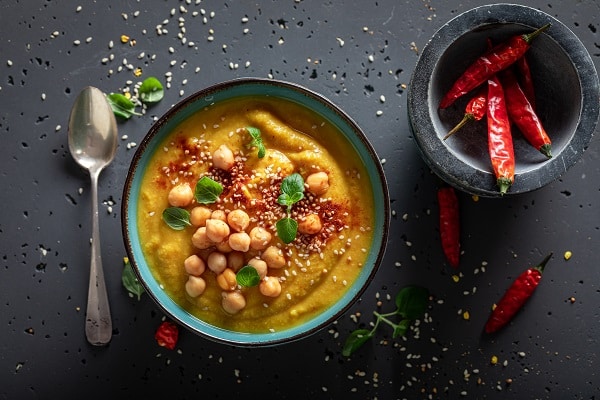The gluten-free trend has taken the world by storm, with supermarket aisles now dedicated to gluten-free products. What exactly is gluten, and is avoiding it a healthier choice for everyone? This question has puzzled health-conscious consumers for years. With an array of gluten-free options—from bread to pasta to desserts—the question of their health benefits becomes increasingly relevant. This article aims to dissect the gluten-free phenomenon, examining the nutritional profile of gluten-free foods, the science behind gluten and health, and common myths and misconceptions.
Contents
What Is Gluten?

Gluten is a protein found in wheat, barley, and rye. It acts as a binding agent, giving elasticity to dough and a chewy texture to baked goods. Foods like bread, pasta, and cereals are common sources of gluten. While gluten is not inherently harmful, it can trigger adverse reactions in certain individuals.
Understanding the role of gluten in food is essential for making informed dietary choices. Gluten contributes to the texture, moisture, and flavor of many foods. It’s not just in bread and pasta; gluten is also found in sauces, dressings, and even some processed meats. Knowing where gluten lurks can help consumers make choices aligned with their dietary needs and preferences.
Why Do People Go Gluten-Free?

There are various reasons why people opt for a gluten-free lifestyle. Medical conditions like celiac disease, wheat allergy, and non-celiac gluten sensitivity necessitate the avoidance of gluten. For these individuals, consuming gluten can lead to severe health complications, ranging from digestive issues to skin rashes and even neurological problems.
However, not everyone who goes gluten-free has a medical reason. Many people adopt a gluten-free diet due to perceived health benefits. Popular diets and wellness influencers often advocate for gluten-free living, claiming it leads to weight loss, increased energy, and overall well-being. While some people report feeling better after cutting out gluten, it’s essential to note that the scientific evidence supporting these claims is limited.
The Nutritional Profile Of Gluten-Free Foods

When it comes to nutrition, gluten-free doesn’t necessarily mean healthier. Gluten-free foods often lack essential nutrients found in their gluten-containing counterparts. For instance, whole-grain bread is a good source of fiber, vitamins, and minerals, while many gluten-free breads are made from refined flour that is lower in nutrients.
Manufacturers often use alternative ingredients like rice flour, potato starch, or tapioca starch to replace gluten. While these ingredients make the food’s texture similar to that of gluten-containing foods, they often lack the same nutritional profile. For example, gluten-free products may be lower in fiber and higher in sugar and fat to mimic the taste and texture of gluten-containing items.
The Health Benefits Of A Gluten-Free Diet

For individuals with celiac disease or gluten sensitivity, a gluten-free diet is not a choice but a necessity. Consuming even trace amounts of gluten can trigger symptoms like abdominal pain, diarrhea, and fatigue. For these people, a gluten-free diet can significantly improve health and quality of life.
However, the health benefits of a gluten-free diet for the general population are still debatable. Some proponents argue that going gluten-free can lead to weight loss and increased energy. While anecdotal evidence supports these claims, scientific studies have not established a direct link between a gluten-free diet and these health benefits for those without a gluten-related medical condition.
The Downsides Of A Gluten-Free Diet

Going gluten-free is not without its drawbacks. One of the most significant challenges is the potential for nutritional deficiencies. Gluten-free foods often lack essential nutrients like fiber, iron, and B vitamins, which can lead to health issues over time.
Additionally, gluten-free foods are often more processed and can be high in sugar and fat to compensate for the lack of gluten. This can result in a less balanced diet and potentially higher calories. Moreover, gluten-free products are generally more expensive, making them a less accessible option for many people.
The Science Behind Gluten And Health

Scientific research on the health implications of gluten is still evolving. Studies have confirmed the necessity of a gluten-free diet for individuals with celiac disease and gluten sensitivity. However, the benefits for the general population are less clear.
Experts in the field caution against adopting a gluten-free diet without a medical reason. The current scientific consensus suggests that gluten is not harmful to most people and may be beneficial as part of a balanced diet. Before making significant dietary changes, it’s advisable to consult a healthcare provider for personalized guidance.
How To Make A Gluten-Free Diet Healthier

If you’re committed to a gluten-free lifestyle, there are ways to make it healthier. Focus on naturally gluten-free foods like fruits, vegetables, lean meats, and whole grains like quinoa and rice. These nutrient-dense foods can help fill the nutritional gaps often found in gluten-free processed foods.
Consulting a healthcare provider or a registered dietitian can provide personalized advice tailored to your needs. They can help you navigate the complexities of a gluten-free diet, ensuring you get the nutrients you need while avoiding potential pitfalls.
Common Myths And Misconceptions

The gluten-free trend has given rise to several myths and misconceptions. One common belief is that “gluten-free” means “calorie-free,” which is far from the truth. Gluten-free foods can be just as calorie-dense, if not more so, than their gluten-containing counterparts.
Another misconception is that gluten is harmful to everyone. While it’s true that some people must avoid gluten for medical reasons, there’s no scientific evidence to suggest that gluten is universally harmful. In fact, gluten can be part of a balanced and healthy diet for most people.
The Bottom Line
In summary, the question of whether gluten-free foods are healthier is complex and depends on individual health needs. A gluten-free diet is essential for those with celiac disease or gluten sensitivity. However, gluten-free foods are not inherently healthier for the general population and can even lead to nutritional deficiencies if not carefully managed. As with any significant dietary change, it’s crucial to consult a healthcare provider for personalized advice. Making informed choices is key to achieving a balanced diet and optimal health.


